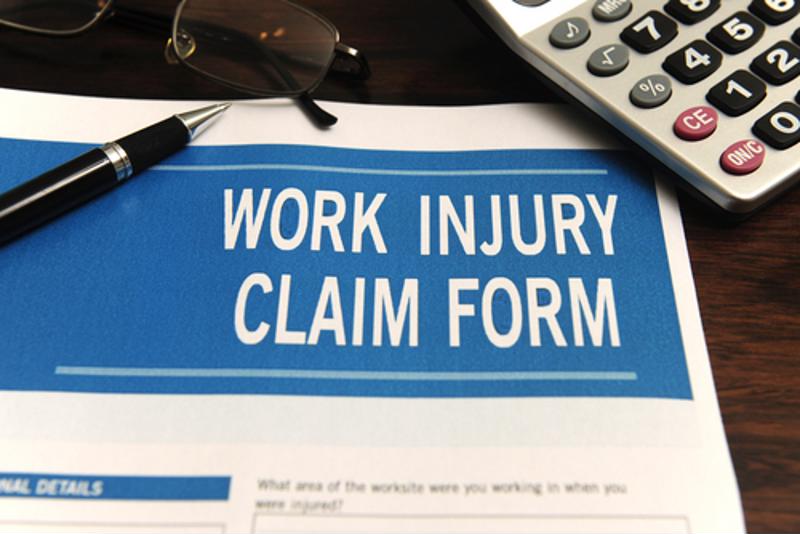When an employee gets hurt on the job, he or she can leave a gap in the workplace. His or her work will need to be reassigned, you may need to find a temporary worker to replace the person and productivity could take a nose dive. However, if you don’t have workers’ compensation insurance, the disadvantages could be much worse. By incorporating the extra payments into your financial plan, you’ll be able to take care of your employees while injured and protect your company from potential legal trouble.
Why is workers’ compensation necessary?
If you run a business, you’re required by law to have workers’ compensation insurance. By skipping this step in setting up your company, you’re opening yourself up for future problems that would be detrimental to your business. However, by purchasing insurance, you’ll be able to provide your employees with extra health benefits and job protection, while avoiding any potential costly issues, NOLO explained. Each state has its own regulations, which means expenses and coverage in one may differ from another. However, you’ll need workers’ compensation regardless of where you’re located.
This coverage includes any job-related injury, whether it occurs on or off-site, according to the source. These could include situations such as an illness from exposure to chemical products or a fall from scaffolding. However, it also offers employers protection from paying for unrelated injuries. Any harm that is self-inflicted, occurs because of alcohol or drugs, happens during a crime or is received off the job is not covered by workers’ compensation insurance.
 Injuries happen, but workers’ compensation insurance protects both you and employees.
Injuries happen, but workers’ compensation insurance protects both you and employees.Employees that receive workers’ compensation are able to collect part of their salaries while out of work, have their medical appointments paid for and receive rehabilitation benefits, such as further training and job placement assistance.
Employers must pay their premiums to receive coverage, post notices and documents that provide necessary information to staff members concerning their rights and hand out claim forms to those injured workers that require them, NOLO explained.
How can a lack of workers’ compensation affect employers?
American employers pay nearly $170 billion each year for direct workers’ compensation costs, including medical bills, legal fees and general payments, the U.S. Department of Labor’s Occupational Safety & Health Administration reported. However, that isn’t close to what you could be paying without workers’ compensation insurance, Entrepreneur contributor Matt Straz explained. Without these programs, employers would be paying these fees out of their own business banking accounts. While $1 billion may seem like a lot of money, it’s much lower than what it could be without insurance. According to the National Safety Council, a California business may pay less than $2,000 for an employee making $50,000 annually on insurance, but $38,000 out of pocket, Entrepreneur reported.
“Employers pay nearly $170 billion annually for direct workers’ compensation costs.”
Workplace injuries may also be the causes of lawsuits. If a worker is injured and you don’t have workers’ compensation insurance, he or she may sue you in an attempt to get the money he or she needs, Straz explained. Because companies are required by law to have workers’ compensation insurance, you may face high penalties by skipping out on payments.
What are the effects of absent employees?
Absenteeism, whether from sickness or injury, has a number of negative effects on the workplace, all starting with a loss of productivity. According to a survey from the Society for Human Resource Management and Kronos, 75 percent of respondents believe absent employees have a moderate to large impact on productivity. Despite these people not being present in the office, the work still needs to get done. This means other staff members must take on additional duties to ensure the company remains on schedule. More work can be detrimental to the rest of your employees, as more work can create stress and lower office morale. Reassigning the workload also takes time away from managers and supervisors because they will have to plan out the day’s responsibilities instead of doing their daily tasks.
Unplanned absences can also have a significant impact on your bottom line. According to a white paper from Circadian Technologies, unscheduled days off cost companies approximately $3,600 annually for an hourly worker and $2,650 for a salaried employee, Payscale reported. If more than one person isn’t showing up for work, your business could face an increase in unexpected expenses.
How can you improve your safety program?
According to OSHA, creating a health and safety program in the workplace could reduce workers’ compensation costs by 20 to 40 percent. By ensuring all employees receive proper on-the-job training and incorporating regular safety seminars into the office, you’ll be able to reduce injuries. When you have a safer workplace, you also have happier and more satisfied employees.
“A safety program could reduce workers’ compensation costs by 20 to 40%.
Without a safety program, you are at risk of lawsuits. Even when you have workers’ compensation, you aren’t protected by having a dangerous workplace, NOLO explained. If you have created an environment that can cause harm to any of your employees, you may face a lawsuit if someone gets hurt. In these instances, an employee doesn’t have to go through workers’ compensation. They can go directly to the legal system and sue for full monetary damages.
However, you can avoid this by implementing stronger safety policies. Company owners can partner with OSHA to review their programs, and the organization has a special program for small businesses, the Safety and Health Achievement Recognition Program. SHARP encourages, assists and recognizes companies for being proactive in their safety measures.
Work injuries happen, and sometimes they cannot be avoided. However, by providing workers’ compensation insurance, you’ll be considering both your business and your employees’ well-being.

